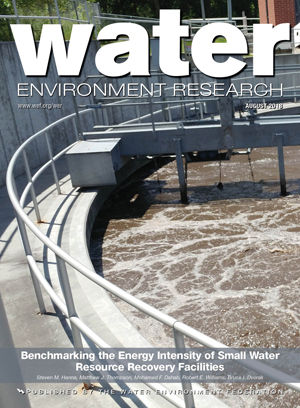Potable reuse can bring many benefits, even when compared to typical water management practices. University of Nevada (Reno) researchers conducted a triple-bottom-line assessment of the benefits of reclaimed water management strategies. Their article, which appears open-access in the August issue of Water Environment Research (WER), presents their work examining how potable use of reclaimed water can preserve ecosystems while meeting a growing demand for safe, local drinking water.
“Indirect potable reuse of reclaimed wastewater was evaluated in the Reno-Sparks metropolitan area in Nevada using a triple-bottom-line approach by Haak et al.,” said Tim Ellis, WER editor-in-chief. “Indirect potable reuse was determined to provide environmental and social benefits over the status quo approach, which involved water importation. Factors included in the analysis included water safety and quality, sustainable water supplies to meet a growing demand, matching groundwater extraction and recharge/inflow rates, and the preservation of inland ecosystems.”
The article, “Sustainability Assessment for Indirect Potable Reuse: A Case Study from Reno, Nevada,” presents quantitative and qualitative impact assessments of social, environmental, and economic criteria. The potable reuse scenario provided more environmental and social benefits than other “status quo” scenarios, the article says.
Other papers published in this issue include
- “Soybean Peroxidase-Catalyzed Treatment of Azo Dyes with or without Fe° Pretreatment,”
- “Evaluation of Meiofauna in the Hyporheic Zone of the Beberibe River, Pernambuco, Brazil,”
- “Dynamics of Phosphorus Content in the Water-Sediment Interface of Wetlands in a Mid-Temperature Steppe,”
- “Response of Epiphytic Algae to Heavy Pollution of Water Bodies,”
- “A New Photocatalyst Bismuth Oxo Citrate: Synthesis, Characterization, and Photocatalytic Performance,”
- “Anaerobic-Aerobic Combined System for the Biological Treatment of Azo Dye Solution using Residual Yeast,”
- “Benchmarking the Energy Intensity of Small Water Resource Recovery Facilities,” and
- “Solubilization of Organics Due to Thermal Hydrolysis Pretreatment and the Shift in Microbial Population in Anaerobic Digestion.”









August 30, 2018
WEF Resources & Efforts